Li-Ion Batteries & Chargers
-

Power Portable
Li-Ion Charger (Single Slot) + 18650 3.6V Li-Ion Button Top Batteries (2000 mAh)
$22.49As low as: -

Power Portable
Li-Ion Charger (Single Slot) + 18650 3.6V Li-Ion Button Top Battery (2300 mAh)
$24.79As low as: -

Tenergy
Li-Ion Charger (Single Slot) + 18650 Tenergy 3.6V Lithium Ion Battery (2600 mAh) w/ PCB
$24.99As low as: -

Power Portable
Li-Ion Charger (Single Slot) + 18650 3.6V Li-Ion Button Top Battery (2600 mAh)
$25.49As low as: -

Power Portable
Li-Ion Charger (Single Slot) + 18650 3.6V Li-Ion Button Top Battery 3400 mAh)
$28.49As low as: -
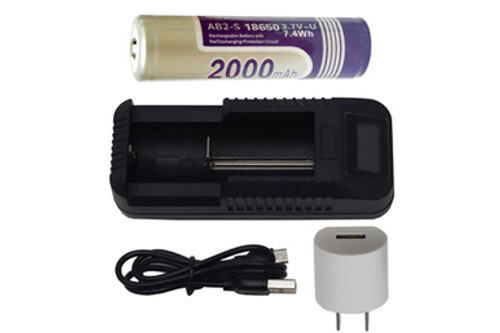
Power Portable
1-Slot Li-Ion Charger w/ LCD Display + 18650 3.6 Volt 2000 mAh Li-Ion Battery
$28.99As low as: -
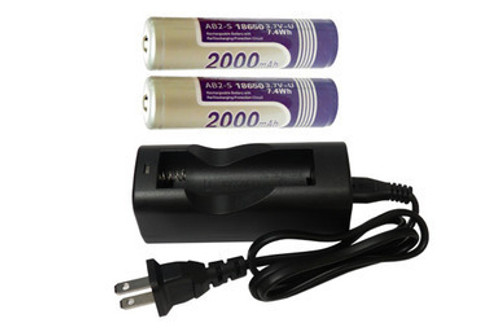
Power Portable
Li-Ion Charger (Single Slot) + 2 x 18650 3.6V Li-Ion Button Top Batteries (2000 mAh)
$29.99As low as: -
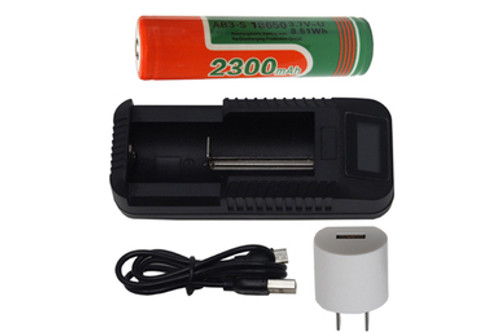
Power Portable
1-Slot Li-Ion Charger w/ LCD Display + 18650 3.6 Volt 2300 mAh Li-Ion Battery
$31.29As low as: -
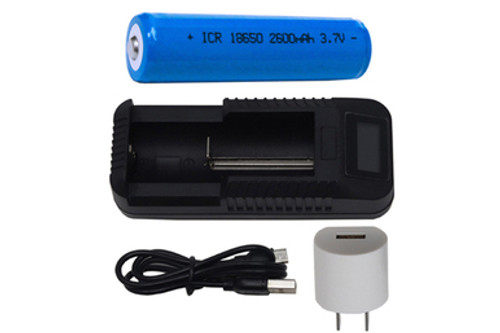
Power Portable
1-Slot Li-Ion Charger w/ LCD Display + 18650 3.6 Volt 2600 mAh Li-Ion Battery
$31.99As low as: -
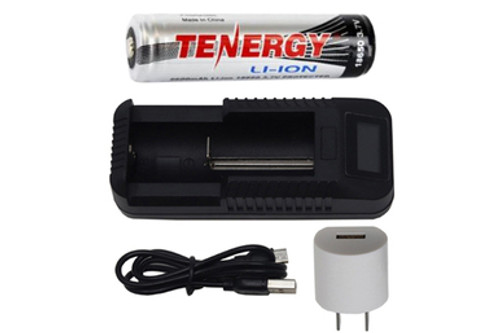
Tenergy
1-Slot Li-Ion Charger w/ LCD Display + 18650 3.6V Tenergy Lithium Ion Battery (2600 mAh) w/ PCB
$31.99As low as: -
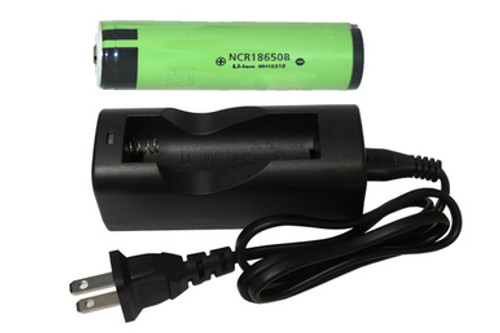
Panasonic
Li-Ion Charger (Single Slot) + 18650 3.6V Panasonic Li-Ion (3400 mAh) w/ PCB
$32.99As low as: -

Power Portable
LIR2032 Charger + 2 x LIR2032 3.6 Volt Lithium Ion Button Batteries
$32.99As low as: -
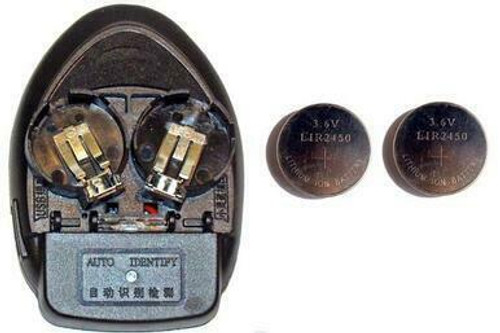
Power Portable
LIR2450 Charger + 2 x LIR2450 3.6 Volt Lithium Ion Button Batteries
$32.99As low as: -
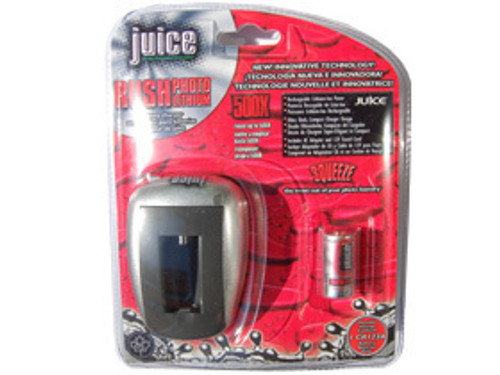
-
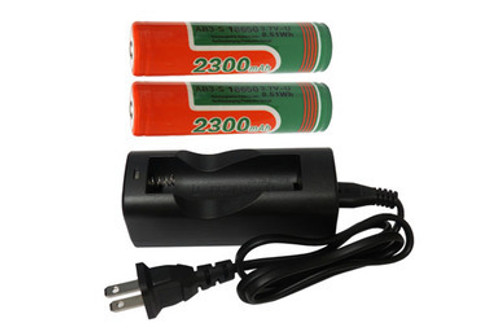
Power Portable
Li-Ion Charger (Single Slot) + 2 x 18650 3.6V Li-Ion Button Top Batteries (2300 mAh)
$34.09As low as: -

Power Portable
Li-Ion Charger (Single Slot) + 2 x 18650 3.6V Li-Ion Button Top Batteries (2600 mAh)
$34.99As low as: -
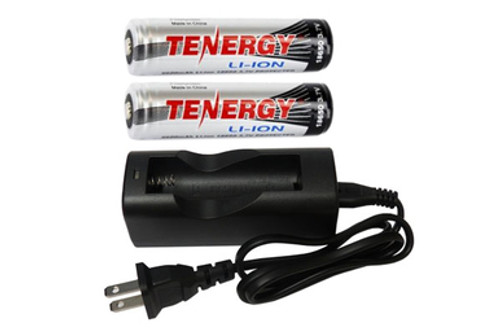
Tenergy
Li-Ion Charger (Single Slot) + 2 x Tenergy 18650 3.6V Lithium Ion Batteries (2600 mAh) w/ PCB
$34.99As low as: -

Power Portable
9 Volt Li-Ion / Li-Po Charger + 9 Volt Lithium Ion Battery (500 mAh)
$35.89As low as: -

Power Portable
1-Slot Li-Ion Charger w/ LCD Display + 2 x 18650 3.6 Volt 2000 mAh Li-Ion Batteries
$35.99As low as: -

Power Portable
Li-Ion Charger (2 Slot) + 2 x 18650 3.6V Li-Ion Button Top Batteries (2000 mAh)
$35.99As low as: -
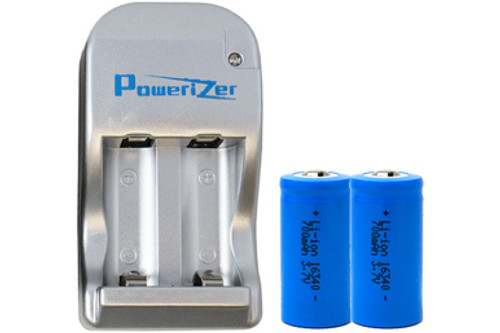
Powerizer
2 x RCR123 (16340) 3.7 Volt Lithium Ion Batteries (700 mAh) + 2 Bay Powerizer Smart Charger
$36.89As low as:
LI-ION BATTERIES & CHARGERS
In today’s technology-driven world, reliable power sources are indispensable. Lithium-ion (Li-Ion) batteries have become the gold standard for powering a wide range of devices, from smartphones to electric vehicles. Their high energy density, long lifespan, and rechargeable nature make them a top choice for both consumer electronics and industrial applications. Coupled with efficient chargers, Li-Ion batteries provide unmatched convenience and reliability.
Advantages of Li-Ion Batteries
Li-Ion batteries are prized for their numerous benefits, including:
High Energy Density: Li-Ion batteries store more energy in a compact form compared to other chemistries, making them ideal for portable devices.
Rechargeability: They can be recharged hundreds of times, offering a cost-effective power solution.
Long Lifespan: With proper maintenance, Li-Ion batteries have a lifespan of several years, reducing replacement frequency.
Low Self-Discharge: Unlike other batteries, Li-Ion cells retain their charge longer when not in use.
Types of Li-Ion Batteries
Common Variants
Li-Ion batteries come in various types to suit different applications. Some of the most popular ones include:
18650: Cylindrical cells used in laptops, power tools, and flashlights.
LIR2032 and LIR2450: Coin cell batteries found in small devices like watches and calculators.
RCR123: Compact rechargeable batteries for cameras and medical devices.
9 Volt: Standard rectangular batteries for smoke detectors and portable electronics.
LiFePO4: A specialized type of Li-Ion battery known for its stability and safety, commonly used in solar energy systems and electric vehicles.
7.4 Volt: Multi-cell battery packs for drones, RC vehicles, and cameras.
Button Top vs. Flat Top Batteries
Button Top: These batteries have a raised positive terminal and are often used in devices requiring spring-loaded connections.
Flat Top: These batteries have a flat positive terminal, making them ideal for custom battery packs or applications requiring a tight fit.
Capacity Ranges
Li-Ion batteries are available in capacities ranging from 1500mAh to 3500mAh, with higher-capacity batteries offering extended runtime for power-hungry devices.
Top Manufacturers of Li-Ion Batteries
Several reputable manufacturers produce high-quality Li-Ion batteries:
Panasonic: Known for their consistent quality and reliable performance.
Samsung: A leader in innovation, offering batteries for smartphones, laptops, and more.
LG: Renowned for their cutting-edge technology and high-performance batteries.
Other Notable Brands: Include Sony, Sanyo, and EBL, which offer trusted options for various applications.
Types of Chargers for Li-Ion Batteries
Choosing the right charger is crucial for maximizing battery performance and lifespan.
Single-Slot Chargers
Ideal for charging individual batteries.
Compact and portable, making them suitable for travel.
Multi-Bank Chargers
Designed to charge multiple batteries simultaneously.
Perfect for users with high power demands, such as photographers or technicians.
Smart Chargers
Equipped with automatic cut-off functionality to prevent overcharging.
Use intelligent algorithms to adjust the charging current and voltage based on the battery’s condition.
Choosing the Right Charger-Battery Combo
Factors to Consider
Capacity: Ensure the charger can handle the battery’s capacity (mAh rating).
Voltage: Match the charger’s output voltage with the battery’s specifications.
Charging Speed: Select a charger with adjustable speed options to balance fast charging and battery health.
Safety Features
Look for chargers with built-in protections such as:
Overcharge Protection: Prevents overcharging, which can damage the battery.
Short-Circuit Protection: Safeguards against electrical faults.
Temperature Monitoring: Stops charging if the battery overheats.
Best Practices for Battery Maintenance
Proper care ensures your Li-Ion batteries perform optimally and last longer.
Storage Tips
Store batteries in a cool, dry place away from direct sunlight.
Keep batteries at a 40-60% charge for long-term storage to prevent capacity degradation.
Charging Guidelines
Avoid overcharging or fully discharging your batteries.
Use chargers specifically designed for Li-Ion batteries to ensure safety and efficiency.
Regular Testing and Maintenance
Periodically test battery voltage and capacity to monitor health.
Replace damaged or degraded batteries to prevent safety hazards.
Applications and Use Cases
Li-Ion batteries are incredibly versatile, powering a wide range of devices:
Consumer Electronics: Smartphones, laptops, tablets, and wearable devices.
Portable Power Banks: Compact energy solutions for charging devices on the go.
Lighting Systems: Flashlights, headlamps, and emergency lighting.
Electric Vehicles: From e-bikes to full-sized electric cars.
Medical Devices: Heart monitors, hearing aids, and portable diagnostic tools.
Eco-Friendly Aspects of Li-Ion Batteries
Recycling and Disposal
Li-Ion batteries should never be thrown in regular trash. Recycling facilities can safely process them to recover valuable materials like lithium, cobalt, and nickel.
Environmental Impact
While the manufacturing process for Li-Ion batteries has an environmental footprint, advancements in sustainable production methods are reducing their impact.
Sustainable Practices
Reusable Energy Storage: Li-Ion batteries are integral to renewable energy systems like solar and wind power.
Battery Innovations: Research into solid-state batteries and more sustainable chemistries promises a greener future.
Li-Ion batteries and chargers have revolutionized how we power our devices, offering unparalleled convenience, reliability, and efficiency. By understanding the various types of batteries and chargers, as well as adhering to best practices for maintenance, users can maximize their investment and minimize environmental impact.
With industry leaders like Panasonic, Samsung, and LG at the forefront of Li-Ion technology, consumers can trust the quality and innovation of these power solutions. As we move towards a more sustainable future, Li-Ion batteries will continue to play a pivotal role in powering our tech-driven world.
Choose the right Li-Ion battery and charger for your needs today and experience the power and convenience of this groundbreaking technology.

